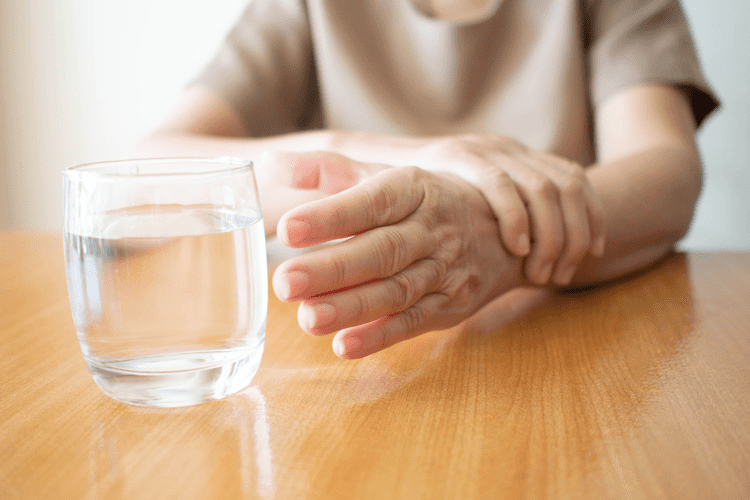This cycle often ends in dependence and addiction, requiring professional help to stop the cycle of abuse and start the addiction treatment phases4. The hope is that you will be ready to resume daily http://forum-abkhazia.ru/showthread-t_1454-page_9.html life after treatment, manage stressors and triggers, and stay sober for the long term. The reality is that many situations can make it hard to reintegrate into normal life without some hiccups and potential for relapse. Aftercare programs make it easier to remain in recovery and avoid returning to substance use.

Getting Sleep, Dealing With Cravings
This is believed to occur due to changes in the central nervous system on a molecular and cellular level that affects emotions and behaviors long after the physical symptoms of alcohol withdrawal have ended. For this reason, it’s important to undergo alcohol detox under the care of medical professionals in an alcohol addiction treatment center. If you are worried about yourself or a loved one, Discover Recovery Treatment Center in Washington offers individualized alcohol detox programs.
During the recovery stage, it’s not uncommon to feel temporarily worse. For some people, AUD has hurt their relationships, careers, health, finances, self-esteem, and other aspects of their lives. One common mistake for those who are new to alcohol and drug recovery is substituting a new compulsive behavior for their old one. People new to recovery can find themselves approaching their new diet, http://mpilot.ru/items1-view-11223.html exercise program, job, and even participation in support groups with a compulsion that echoes addiction.
How common is relapse?
- Seek out events and gatherings that don’t revolve around alcohol, such as outdoor adventures, cultural experiences, or volunteering opportunities.
- These stories offer insight into the challenges and triumphs of the recovery process and provide hope for those who may be struggling.
- The journey starts with quiet reflection on how substance use affects you and your loved ones.
- Work with your therapist or support group to develop a comprehensive, long-term recovery plan.
- Now that you are sober, you may have discovered that some of your past relationships were not only unhealthy but downright toxic.
Personal accounts allow individuals to see that recovery is possible and that they are not alone in their struggles. Lastly, recovery podcasts can serve as a source of inspiration and motivation. Hearing stories of individuals who have successfully overcome addiction and rebuilt their lives can be incredibly inspiring. These stories remind individuals that recovery is possible and that they are not alone in their struggles. Alcohol withdrawal syndrome is a set of symptoms that occur when someone who is physically dependent upon alcohol suddenly stops drinking or drastically reduces their alcohol intake.

What factors affect the severity of withdrawal symptoms?
It’s one thing to recognize a need for getting sober; it’s http://www.artadmires.com/www/tenetmarine/services/ entirely another to actually do it. Combining therapy with support groups can greatly improve your odds of success. Therapy combined with an AUD program tends to lead to a high recovery success rate.
Your Next Steps
For instance, if your substance use disorder is diagnosed as mild, an outpatient program might be recommended. Outpatient programs vary widely but typically provide a designated number of hours of treatment per week at a treatment center or facility. For more severe addiction issues, healthcare professionals may suggest inpatient care, which requires you to live onsite at the hospital or facility for the duration of treatment. Not everyone comes from an encouraging and supportive home environment.
- Physical dependence is more likely to occur as your tolerance for alcohol, and therefore the amount you use, increases.
- If any area of your life is out of control, it will not help you maintain lasting sobriety.
- The withdrawal symptoms can also escalate in severity rather quickly and aggressively.
- This model helps us understand the journey’s complex nature and the need for a personal timeline in treatment12.
Medical professionals can provide the necessary support and interventions to ensure the safety and well-being of the individual throughout the detoxification process. Alcohol rehabilitation plays a crucial role in helping individuals overcome their struggles with alcohol addiction. It provides a structured and supportive environment for individuals to address their addiction and work towards recovery. The journey of alcohol rehabilitation is comprised of several stages, each serving a unique purpose in the recovery process. One study found that 68% of people treated in a detox unit experienced moderate alcohol withdrawal symptoms.
- I say that it sounds like another way to insist that the person who is on stage performing is not actually him.
- Spending more time with supportive loved ones and planning activities for the entire family can also help you develop a healthier lifestyle and avoid situations in which you would normally drink or use drugs.
- Remember to be kind to yourself throughout the process, and don’t be afraid to reach out for support when you need it.
- Secondly, recovery podcasts offer a wealth of information and resources.
In the Next Few Weeks
“Fortunately, not near the hell the first three days were. I am hoping that means I may finally sleep tonight. For me, the toughest parts are the vomiting (dry heaves), insomnia, and anxiety.” “Feeling better. Best night’s sleep in some time. Weird dreams but not too nasty and scary. Feel a little weak, but I did avoid food for about four days. Very reflective still.” “The physical symptoms aren’t so bad, but my mind seems to be trying to figure out how I can have just one drink. I have plans to get some yard work done, so that will keep me busy.”
Remember to care for yourself, seek supportive relationships, and consider seeking help from a therapist. For many people with a substance use disorder, it’s simply a matter of never having learned the appropriate way to manage anger. Talk to your therapist, other healthcare provider, or sponsor about how to deal with your anger in ways that won’t cause you to harm yourself or others or turn to alcohol or drugs. You may also experience what is commonly called sobriety fatigue, which refers to the overall exhaustion that may occur as a result of the emotional and physical stress of staying sober.
